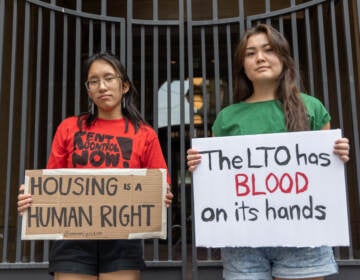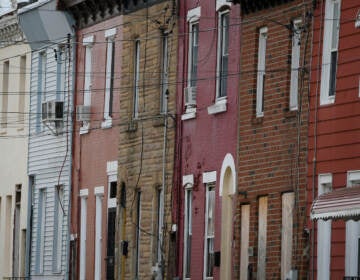Philadelphia’s small landlords have run out of time
Philadelphia native Ebony Harris thought buying rental properties would build generational wealth for her and her family. Then the pandemic hit.
Listen 3:30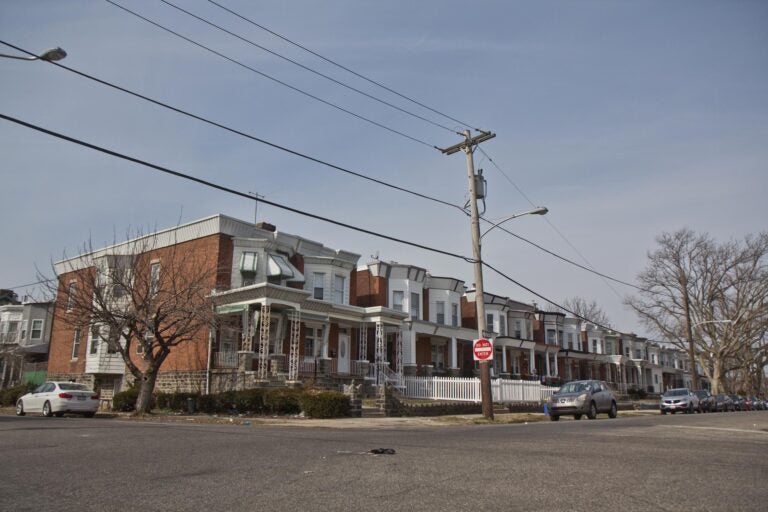
Homes in West Philadelphia. (Kimberly Paynter/WHYY)
Ebony Harris, a Germantown-born veteran, bought her first rental property in the city that raised her three years ago. With the purchase, she intended to build the generational wealth her family never had and pass it down to her children. The coronavirus pandemic threw her plans for a loop she never saw coming.
Harris hasn’t gotten a rental payment from either of her tenants since last March when the city shut down, hundreds of thousands of city residents lost their livelihoods and she began to sense a pending disaster.
“I tried to say well, OK, if you could pay anything … half of the rent, some of the rent,” she said, recalling her attempts to negotiate payment plans with her struggling tenants.
After months of spotty communication with her tenants and no rent, Harris thought about going the eviction route but that wasn’t an option due to rental protections put in place to keep people housed during the pandemic.
Eventually, city and state aid opened up rental assistance programs. Harris tried to secure aid and did get approved for four months of assistance. Months later, she and her tenant are yet to see a check.
In one year, Harris has lost $22,000, she said, and can’t pay her homeowner’s insurance or mortgage, which is now in forbearance.
“There’s no way I can keep these apartments,” she said. “If I don’t sell it, I will go into debt personally.”
Landlords like Harris occupy an important yet often overlooked place in the city’s housing market. People who own one or two units make up 73% of all licensed city landlords yet they control less than a quarter of the rental supply, according to a recent report from The Pew Charitable Trusts and Reinvestment Fund. Meanwhile, the 2% of licensed Philadelphia landlords who own 25 or more units control more than half of the city’s rentals, according to the report.
But it’s the small landlords who provide most of the unsubsidized affordable housing found in the city’s neighborhoods, according to Emily Dowdall, Reinvestment Fund’s policy director. And as Harris knows all too well, they’re also more likely to feel the financial impacts of the pandemic shutdowns.
“In some cases, small landlords are not all that different economically than their tenants are in a city like Philadelphia,” Dowdall said “They don’t have a huge financial cushion … so when tenants can’t pay the rent, [landlords] might not be able to pay expenses to operate the property.”
Ebony Harris doesn’t want to evict her tenants or sell the units she worked hard to buy and maintain. She just wants help with her mortgage.
She believes there are many Philadelphia property owners in the same situation.
“There’s going to be a bunch of landlords selling their properties because we can’t pay for this anymore,” she said.
If Harris’ prediction comes true, the city could lose needed affordable units — and a powerful driver of generational wealth in a city that has struggled to provide opportunities for homegrown residents to prosper.
Harris said last week that selling the property that she thought would stay in the family means saying goodbye to a dream she had about her future.
“I don’t know what else to do,” she said. “I don’t have any other skills and this was my only way to make extra income.”
Why small landlords matter
There are major differences between the experiences of big and small landlords in the city. Some relate back to the vulnerability of the smaller operators while others reflect how they do business. In a recent interview, Dowdall said smaller landlords are often more willing to rent to people excluded by corporate screening practices.
If Philadelphia loses these landlords to the pandemic, “we’re probably losing housing for people who might have challenges with credit and other issues in background checks that would come up with larger landlords who tend to do screenings,” she said.
Smaller landlords have also proven more likely to engage in the emergency rental assistance program, according to research from the Housing Initiative at the University of Pennsylvania and Reinvestment Fund.
Researchers also found that small landlords tend to not know about the eviction diversion program but when they do, they are more likely to participate. They were much more likely to call these restrictions reasonable compared to their bigger counterparts.
“A major reason was because they didn’t have much choice,” Dowdall said. “They had to accept the program because getting whatever they could get was better than nothing.”
Despite the willingness of some landlords to negotiate, The Homeowners Association of Philadelphia (HAPCO) has argued that the city’s COVID-19 landlord-tenant regulations are unfair to landlords and the first phase of rental aid didn’t provide the money needed for buy-in. HAPCO also sued the city over the Emergency Housing Protection Act.
“I wish the city would have taken into consideration the landlord’s plight in all of this. Just like the tenants are hurting, so are the landlords,” Paul Cohen, HAPCO’s general counsel, said.
Harris said her own struggle began last March when she recognizing the economic hardship the pandemic was creating and asked her current tenants if they would have issues paying rent.
One had social security and said it wouldn’t be an issue and the other who works said her income wasn’t affected, she recalled. But April rolled around, and rent never came. She said her tenants stopped returning her calls and correspondence became less frequent.
The ensuing 11 months were no different. More recently, the city approved an application for rental assistance submitted by her tenant. City officials said they expect the check to reach the tenant in the next week.
Her tenants did not respond to repeated phone calls from PlanPhilly.
Harris has an upcoming eviction court date in April under the grounds that her other tenant has six people living in a one-bedroom apartment — a breach of their lease. She will also be moving to evict the other one when the pause is lifted.
She’s not trying to evict her for nonpayment because filings are paused for that and she would have to go through the eviction diversion program. She’s tired of waiting.
“I want this to be over,” she said. “I’m ready.”
Larger landlords experienced less revenue loss
Just like all tenants experienced the pandemic’s hardships differently, landlords report a multiplicity of individual experiences.
Anthony Krupincza owns properties in North and West Philadelphia and has weathered the storm without any major losses of income. He’s been able to collect rent throughout the year, although it has been late at times. Two of his tenants applied for rental assistance and one was successful. The money came through.
“We checked in biweekly,” he said “The main thing is keeping communication open and making sure we’re all on the same page.”
Krupincza said he’s willing to work with his tenants and because he only has a small number of tenants, it’s easier for him to create relationships. Krupincza’s experience is similar to most of the small landlords surveyed by Penn and Reinvestment Fund. These individuals said only having a few tenants makes it easier to create relationships and easier communication.
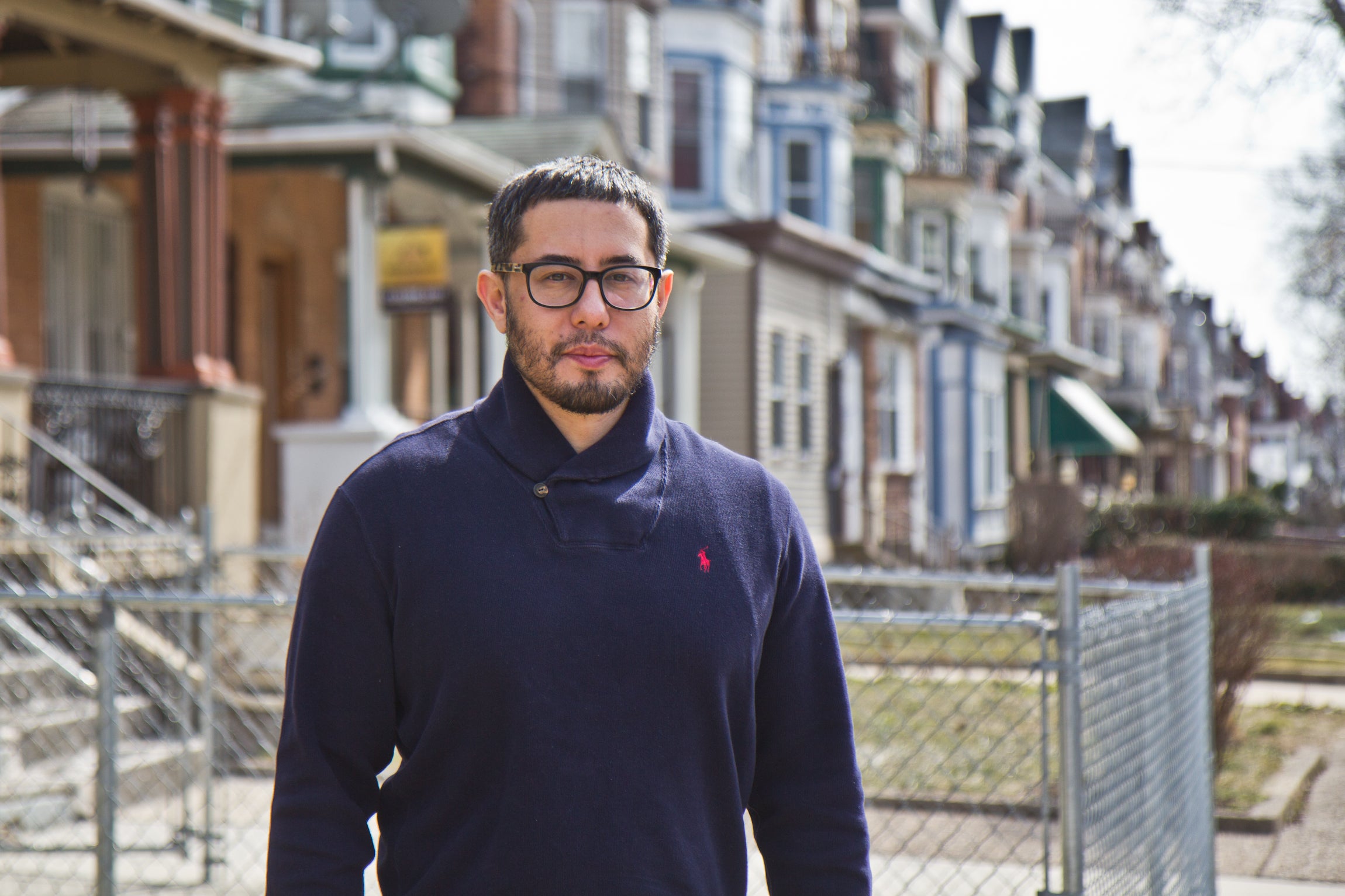
Philadelphia officials changed the city’s rental assistance program to appeal to more landlords in the fall. In September, the city began matching the state money with its own CARES money for a total of up to $1,500 of assistance in later phases. With more incentive for landlords, the participation rate shot up to 63%.
The tweaks came after months of “figuring it out as we go along,” said Greg Heller, Philadelphia Housing Development Corp. senior vice president of community investment, in January.
Without more federal support, the pandemic’s unprecedented demands have proven difficult to navigate for city agencies too but Heller said in January that his agency was working to adapt to meet the needs of both landlords and tenants, paying special attention to the most vulnerable in both groups.
Ori Feibush, the owner of OCF Realty, owns hundreds of rental units and operates several thousand across the city. He said his company hasn’t been all that affected by nonpayment.
Throughout the year, late payments came in and tenants requested repayment plans but overall, the company’s gross income remained the same, Feibush said.
His experience reflects trends identified in the research done by Reinvestment Fund and Penn. Dowdall said big landlords in the study confirm there’s been an increase of nonpayment but are less likely to say it impacted them financially
OCF is a corporation with a staff, not a one-person business like Harris operates. It was able to work with 60 tenants to get the city’s second phase of rental assistance. Like Cohen, Feibush said he didn’t support the first round because of the stringent rules and limited aid.
Still, he said he supports the year’s worth of tenant protections despite worries they ultimately gave renters an unfair advantage. He mentioned he had a few tenants that left at the beginning of the pandemic to go back to families and did not pay rent or correctly break their lease.
“I’m sure that it was important to protect the interests of a lot of tenants who were insecure with work and didn’t know how they would be able to make ends meet so from that perspective, that was helpful,” he said. “From the world that I sit in, which is generally more well-heeled tenants, there were some tenants that took advantage.”
But if Feibush sees tenants who are operating from a place of choice, others experience tenants struggling deeply to survive.
Advocates call for more reliable, predictable aid
Dianna Kelley in South Philadelphia lost her job working security in March. She said she remembers spending hours on the phone trying to get rental assistance and unemployment, but by the time it came through, she owed six months of back rent. She’s still unemployed and anxiously looks for news about the next aid program, the next temporary fix. “I hope that things will change and go back to normal,” she said. “It’s a lot of stress.”
According to a recent Community Legal Services’ renters report, landlords have filed to evict more than 2,760 families since the pandemic began. Black neighborhoods in North and West Philadelphia feel the brunt of the crisis since this is where a lot of the evictions are concentrated, according to city data.
Of the renters surveyed, 17% of are now behind on rent since March 2020, compared to 7% before the shutdown began. Those currently struggling to pay rent are an average of two months behind, while almost a quarter of all renters surveyed felt pressured or were forced to move during the pandemic. The most common reasons for moving cited by renters were falling behind on rent, issues with the condition of the home, and intimidation from the landlord.
To compare on a national scale, 20% of renters are worried about eviction but only 8% are actually in rental debt. Hispanic and Black people are more likely to have rental debt.
City and national programs have helped renters but in many cases, they’re in a similar spot as when the pandemic first began. Nationally, it was common for renters to use their stimulus checks for their rent.
Housing activist Tammer Ibrahim, chair of Reclaim Philadelphia’s steering committee, said this past year made him fight more for immediate direct relief like rental assistance.
Ibrahim also believes that relief programs shouldn’t expire on arbitrary dates and instead should expire by markers in the economy and COVID-19 prevalence rates. He said canceling rent and mortgages should have been the way to go.
“This crisis shouldn’t fall on individual tenants or small landlords,” he said. “We believe that the banks are the only entity that can withstand the crisis we’re seeing.”
Rachel Garland, managing attorney of the housing unit at Community Legal Services, said the mistake was not looking ahead for landlords or renters.
“These protections have been in place because each month, different levels of government have realized they need to extend the protections but living with that level of uncertainty has been difficult for tenants and landlords,” she said.
Harris also wants to see a long-term solution, but in a lot of ways, she feels like she has run out of time.
“I just want this to be over,” she said.
 WHYY is one of over 20 news organizations producing Broke in Philly, a collaborative reporting project on solutions to poverty and the city’s push towards economic justice. Follow us at @BrokeInPhilly.
WHYY is one of over 20 news organizations producing Broke in Philly, a collaborative reporting project on solutions to poverty and the city’s push towards economic justice. Follow us at @BrokeInPhilly.

Subscribe to PlanPhilly
WHYY is your source for fact-based, in-depth journalism and information. As a nonprofit organization, we rely on financial support from readers like you. Please give today.



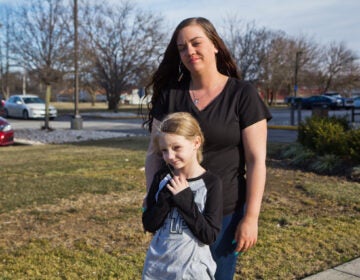

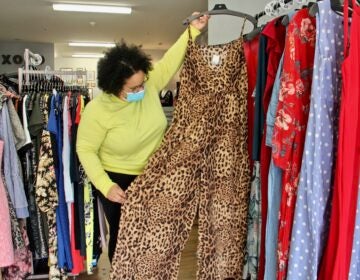

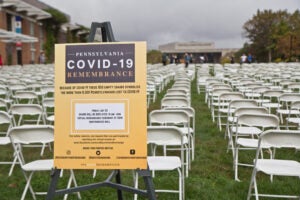
![CoronavirusPandemic_1024x512[1]](https://whyy.org/wp-content/uploads/2020/03/CoronavirusPandemic_1024x5121-300x150.jpg)
